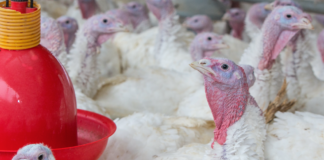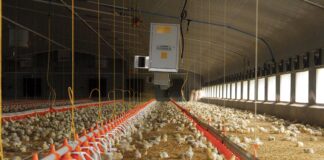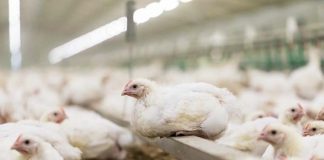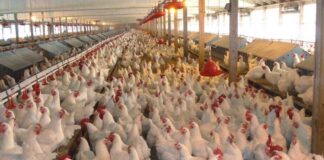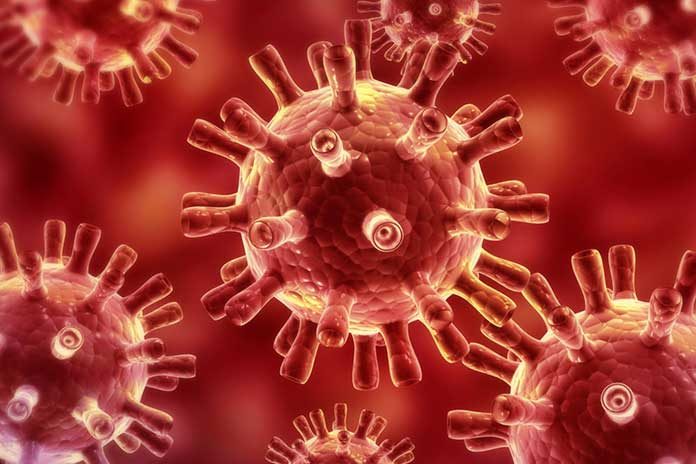
The Pirbright Institute is aware that misinformation regarding the Institute and its research is circulating on social media following an outbreak of a new (novel) coronavirus that infects humans in Wuhan, China. These are the facts regarding our coronavirus research and funding.
The Pirbright Institute carries out research on infectious bronchitis virus (IBV), a coronavirus that infects poultry, and porcine deltacoronavirus that infects pigs. Pirbright does not currently work with human coronaviruses. More information on our coronavirus livestock research can be found on our website.
The Institute holds Patent no. 10130701 which covers the development of an attenuated (weakened) form of the coronavirus that could potentially be used as a vaccine to prevent respiratory diseases in birds and other animals. Many vaccines are made in this way, from flu to polio. We have not yet developed an IBV vaccine, but research is ongoing.
The Institute is strategically funded by the Biotechnology and Biological Sciences Research Council, part of UK Research and Innovation (BBSRC UKRI) and also receives funding from many other organisations including the Bill & Melinda Gates Foundation. The patented work was not funded by the Bill & Melinda Gates Foundation. More information on The Livestock Antibody Hub which is funded by the Bill & Melinda Gates Foundation is available on our website.
The coronavirus first identified in Wuhan, China, earlier this year is a new coronavirus, the seventh coronavirus identified that is able to infect humans. Six other coronaviruses are capable of infecting humans and these can cause diseases which range from mild to severe, and include the common cold, severe acute respiratory syndrome (SARS) and Middle East respiratory syndrome (MERS). The exact origin of the new virus is unknown but initial confirmation shared by China and the World Health Organization (WHO) indicates that this new virus is genetically similar to a SARS-like coronavirus found in bats. The source of the outbreak has yet to be confirmed and investigations are ongoing.
The Pirbright Institute collaborates with scientific institutes and universities around the world to prevent and control livestock diseases and those that can spread from livestock to people, known as zoonoses. Research carried out on viruses and their livestock hosts at Pirbright can inform the development of vaccines for animals and, in the case of zoonotic diseases, potentially prevent and control disease in humans.
Pirbright’s research is focused on animal coronaviruses, primarily chickens. Dr Helena Maier answers some commonly asked questions on coronaviruses, the diseases they cause and the research we do to protect livestock.What is a coronavirus and where do they come from?
Until this new coronavirus was identified, there were six different coronaviruses known to infect humans. Four of these cause a mild common cold-type illness, but since 2002 there has been the emergence of two new coronaviruses that can infect humans and result in more severe disease (Severe acute respiratory syndrome (SARS) and Middle East respiratory syndrome (MERS) coronaviruses). Coronaviruses are known to be able to occasionally jump from one species to another and that is what happened in the case of SARS, MERS and the new coronavirus. The animal origin of the new coronavirus is not yet known.
Are all coronaviruses spread in the same way?
Coronaviruses tend to cause either a respiratory illness (a cold) or a gastrointestinal illness (diarrhoea). The way the virus spreads between hosts depends on the illness it causes. Viruses that cause respiratory illness will spread via coughs and sneezes in the same way that the common cold or flu is spread. Viruses that cause gastrointestinal illness spread via contamination of food and water with faecal matter.
Why is this one different from previous coronaviruses (e.g. SARS/MERS)?
The new coronavirus is different from previously known coronaviruses because it is a new species. It has a different genetic makeup to previously known coronaviruses and will, therefore, behave differently. Precisely how this new coronavirus infects cells, causes illness and spreads is not yet known, but scientists will be working hard to understand that in the future.
Why do different coronaviruses have different severities?
Different coronaviruses cause varying severities of disease for many reasons. The overall outcome of an infection will depend upon how several factors act together. For example, how healthy the person or animal is, whether they have been exposed to related viruses, how effective the virus is at infecting cells and then replicating, and the viruses’ ability to overcome the immune system.
Is there any treatment or vaccines for coronavirus infections? Are there any for this novel Wuhan coronavirus?
Different members of the coronavirus family infect and cause problems in a variety of animal species. Vaccines are available and used regularly in livestock industries to protect animals such as chickens and pigs against infection with coronaviruses. It is too early for vaccines to have been developed against the new coronavirus circulating currently and there are no licensed coronavirus antivirals. Treatment of patients aims to manage the symptoms of infection so the body can fight the virus. However, scientists around the world are working to understand how this important family of viruses make new copies of themselves inside cells and how they cause disease, which could lead to new vaccines and antivirals in the future.
Source = The Pirbright Institute










